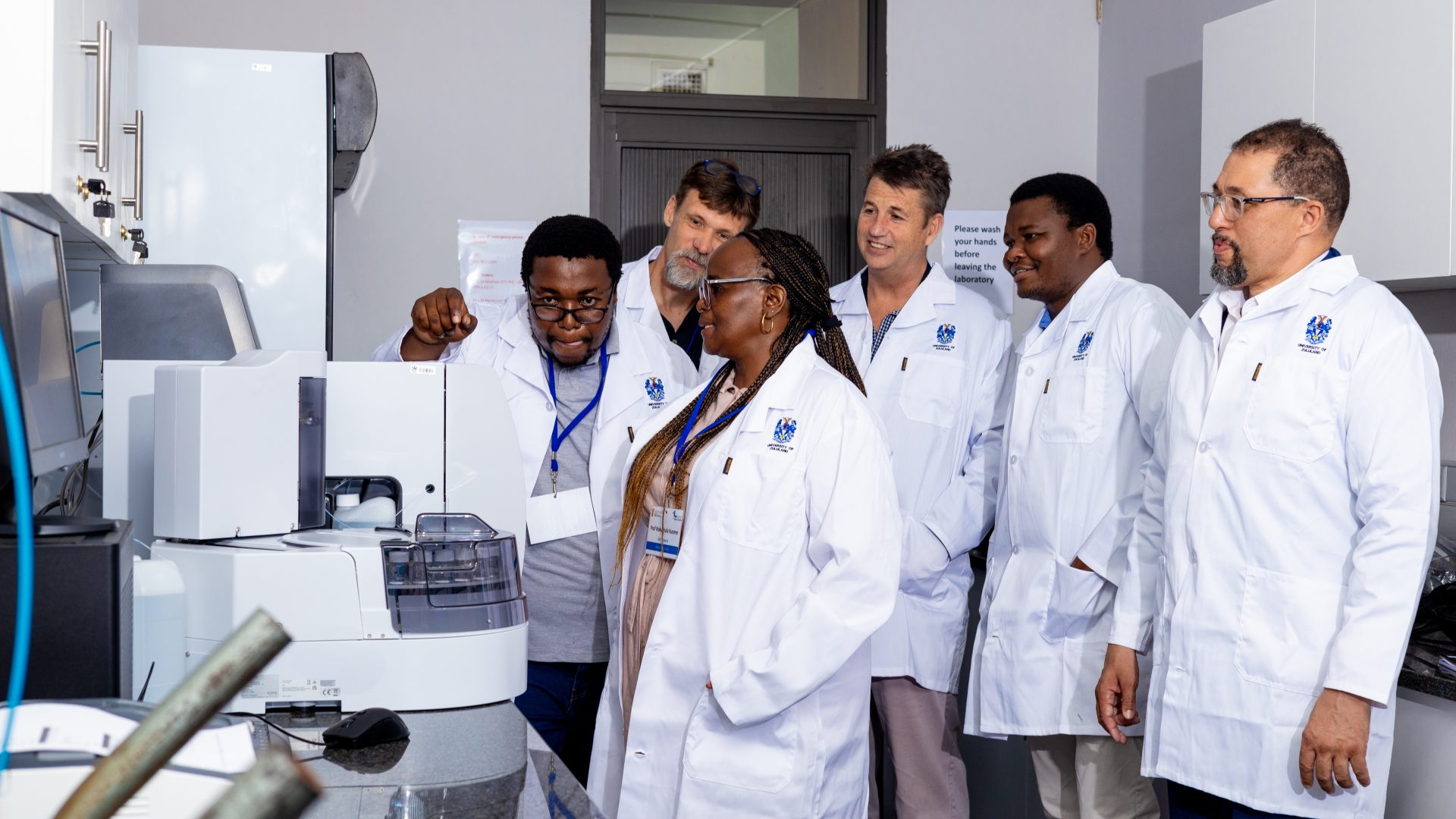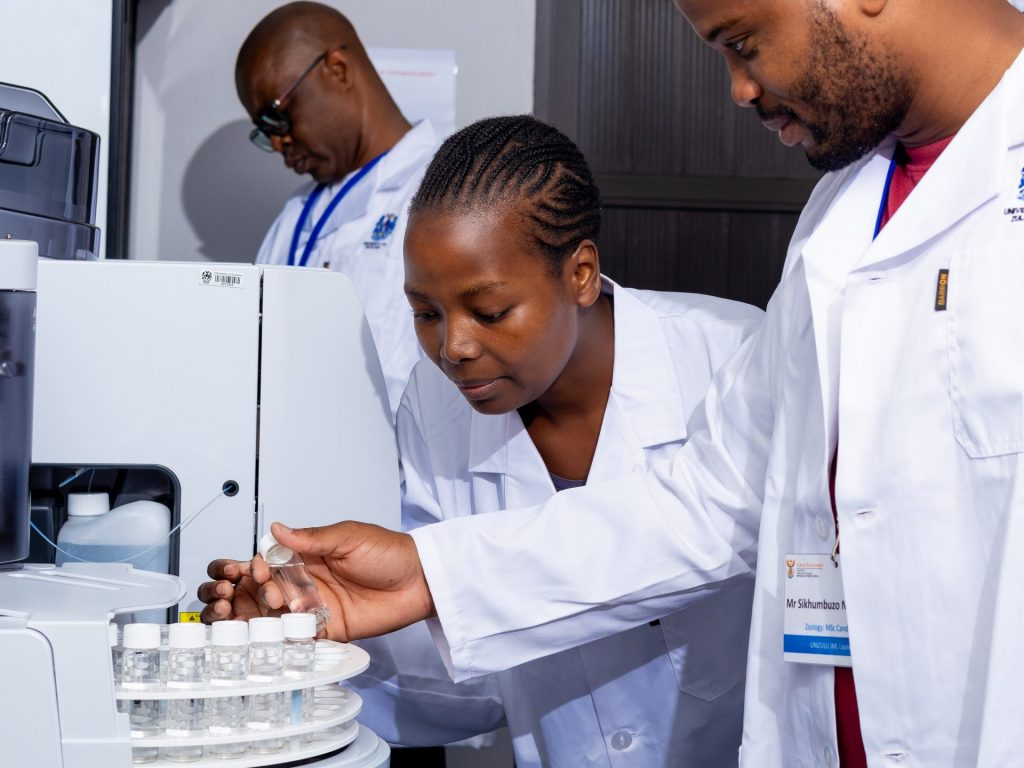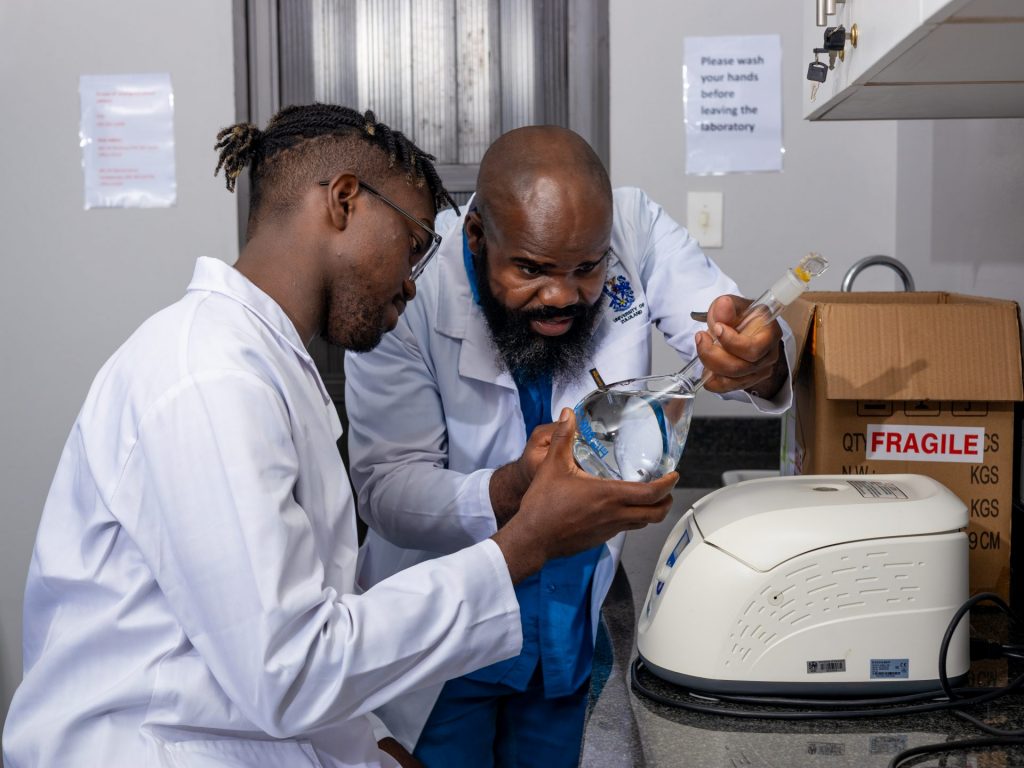Zoology Department launches Joint Marine Laboratory in Marine and Estuarine Ecotoxicology

On Tuesday, 5 December 2023, the University of Zululand’s (UNIZULU) Zoology Department reached a huge milestone when it launched the DSI/NRF-SAIAB/ UNIZULU Joint Marine Laboratory for Marine and Estuarine Ecotoxicology on the KwaDlangezwa Campus.
The infrastructure has been sponsored by the Department of Science and Innovation (DSI) and the National Research Foundation (NRF) as part of the Joint Marine Laboratories Programme. This is a five-year programme to support marine science research through the establishment of laboratories, with state-of-the-art equipment, in four identified historically disadvantaged institutions: UNIZULU, University of Western Cape (UWC), University of Fort Hare (UFH) and Walter Sisulu University (WSU).
The JML programme is implemented through the NRF- South African Institute for Aquatic Biodiversity (SAIAB) in collaboration with the laboratory steering committees of these laboratories.
UNIZULU is the third of the identified HDIs to launch its laboratory. This marks the dawn of a new and exciting era for marine and estuarine pollution research, mentioned Dr Ntuthuko Masikane, Zoology Department Lecturer and Principal Investigator of the laboratory. He elaborated that South Africa, which was historically prolific in conducting marine pollution research and was considered a global competitor, lost its competitive edge due to decreased funding in this area over the years.

“With this new infrastructure, we intend to revitalise marine pollution research. Many people and stakeholders can benefit from such research, including environmental officers, environmental managers, coastal municipalities and industries that use marine and estuarine ecosystems,” Dr Masikane said. More importantly, the academic stressed that the lab would be a conduit for impactful research conducted by UNIZULU postgraduate students, whose scholarly development and exposure to cutting-edge research equipment are central to the programme.
The lab is equipped with two main machines: the ICP optical emission spectrophotometer and the total organic carbon (TOC) analyser. These machines will allow lab users to quantify the concentration of metals in the coastal environment (such asdissolved metals and metals bounded to sediments) as well as metal concentrations that have accumulated in the bodies of marine and estuarine organisms.
Each of the marine labs will conduct specialised research to promote diversity in the body of knowledge in the sector. Notwithstanding these specifications, the programme strongly encourages research collaborations and sharing of the lab facilities among the HDIs. This stems from the understanding that “collaboration amplifies impact”, as cited by Dr Albert Chakona, Acting Managing Director at NRF-SAIAB.
The UWC lab focuses on micro plastics research while the UFH lab looks at the bio economy. The WSU lab, to be launched in early 2024, will specialise in coastal livelihoods research. UNIZULU’s focal point will be marine and estuarine ecotoxicology, a field of research that encompasses both ecology or marine and estuarine organisms, as well as the toxicology of chemicals that find their way to these systems.

“Ecology is about the relationship between organisms and the environment but because we mainly deal with aquatic environment due to our proximity to the coast, we therefore focus r research on aquatic ecology. Toxicology is about poisons and contaminants in the aquatic systems. So, we will be using aquatic organisms to develop them into standard organisms for assessing marine and estuarine pollution or freshwater pollution. We will also be developing standard biological methods and procedures that will be used to assess marine and estuarine pollution,” Dr Masikane expounded.
Professor Nokuthula Kunene, Deputy Vice-Chancellor: Research and Innovation, was among the esteemed guests who graced the launch with their presence. Considering the hurdles that were faced ahead of opening the lab, she expressed that she was elated to finally witness the long-awaited moment. She thanked DSI and NRF-SAIAB “for making this a reality” for the institution, mentioning that she was certain that master’s and PhDs would make good use of this new facility.
“It is such a great honour and privilege to be part of this journey of spearheading the establishment of transformative and cutting-edge research platforms in historically disadvantaged institutions in South Africa,” Dr Chakona shared.
He expressed his excitement at being part of launching yet another hub of excellence in marine science. “We are eagerly anticipating the exceptional discoveries and groundbreaking contributions that the research team, led by Dr Masikane, will make to reshape our understanding and reform effective stewardship of our oceans for the benefit of the country and future generations,” he said as a challenge.
DSI’s Dr Gilbert Siko described the JMLs as building blocks for brighter things and symbols of capacity development, innovation and socioeconomic impact in our country.
- Naledi Hlefane













